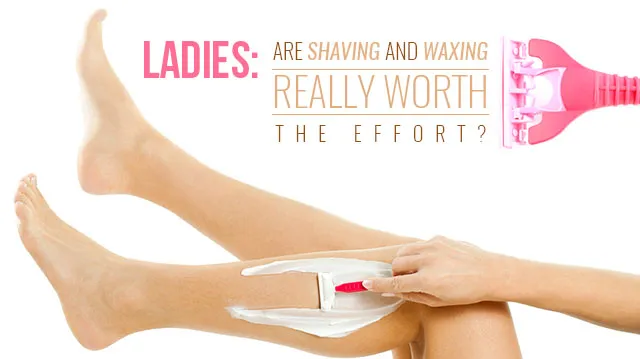
Open up any fashion magazine, or watch a Hollywood blockbuster, and you’ll find one common theme: the women portrayed have very little — if any — body hair. The smooth-skinned, body hair-free woman has become the American societal norm.
Aside from the cost of all those razors, tweezers, waxes, and hair removal creams, has our image of ourselves become distorted? Plus, is all that hair removal healthy?
In an interview with Women’s Health magazine, Rebecca M. Herzig, author of Plucked: A History of Hair Removal and chair of the women and gender studies program at Bates College in Maine, stated:
“American women who choose not to obsess with removing their hair learn pretty quickly that there is a social price to pay for breaking that norm. It’s not just that women are teased, scolded, or shamed for not removing their hair — for ‘not taking care of themselves’ — but also that women have been fired from jobs, lost relationships, been barred from social events, and so on.”
It’s pretty depressing that society pressures women into performing a ritual that takes up so much time and money. Women’s Health reports that women who shave regularly will spend about $10,000 on shaving products in their lifetimes. Before we pick up that razor or schedule that wax, we have to ask ourselves, who or what are we doing it for?
Some people simply like how they look and feel when they are clean-shaven, and there’s nothing wrong with that. It’s a personal choice. However, if we’re doing it for someone else, such as a partner, or to fit the unrealistic images fed to us by Hollywood, we may want to ask ourselves if body hair removal is something we really care about, or if we’re letting someone else dictate how we should look.
The bottom line is no one has the right to tell you how to keep your body hair. It’s a choice that is yours, and yours alone. When we give others power over our own appearance, our view of ourselves becomes highly distorted, and we become players in another person’s — or society’s — reality.
Some health risks to consider
Anyone who has shaved is all too familiar with the nicks, cuts, and ingrown hairs that can occur. These, while not serious in themselves, may become infected, especially if we come into contact with someone or something carrying an infection.
A 2004 study published in the journal Clinical Infectious Diseases studied a group of athletes at a football camp, some of whom had shaved parts of their bodies. The study authors found an association between body shaving and MRSA infection in the players studied.
While this study was performed on football players, it’s possible to extrapolate that having nicks or cuts on the skin during any skin-to-skin contact (such as, say, sex) with someone with a bacterial infection may raise the risk of contracting that infection.
Also, as we’ve previously reported, shaving the bikini zone may be especially dangerous, as it may raise your risk of staph and other types of infections, as well as raise your risk of contracting a sexually transmitted disease. Plus, the bikini area can become easily irritated from shaving or waxing, which may make sex uncomfortable for some women.
If you do it, skip the chemicals
If you do choose to shave, it’s worth it to your health to be careful what you are putting on your skin. Those conventional shaving creams and hair removal products are loaded with chemicals, and these can easily absorb into your body. A mixture of shea butter, coconut oil, and olive oil is all you really need — it’s totally natural, and it moisturizes the skin.
What are your thoughts on women’s hair removal? Is it really necessary?
—Tanya Rakhmilevich
Tanya is a writer at The Alternative Daily with a passion for meditation, music, poetry, and overall creative and active living. She has a special interest in exploring traditional Eastern remedies and superfoods from around the globe, and enjoys spending time immersed in nature.
Sources:
http://www.womenshealthmag.com/beauty/hair-removal-obsession
http://cid.oxfordjournals.org/content/39/10/1446.short


































